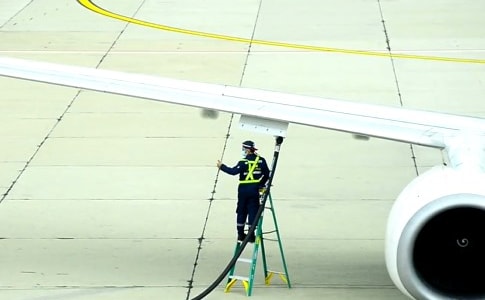IATA estimates SAF production tripled in 2022

IATA has estimated that SAF production will reach over 79 million gallons in 2022, which is a 200% increase from the 2021 production of over 26 million. Other calculations estimate it could reach 118 million gallons. Either number for 2022 indicates the SAF industry is reaching exponential capacity and a production ramp-up toward an identified tipping point of 7.9 billion gallons by 2030.
In accordance with the aviation industry’s goal of achieving net zero CO2 emissions by 2050, SAF has become a major contributor to the goal for airlines. Many current estimates feel SAF will account for over 65% of the mitigation needed to achieve this goal. This would require a production capacity of nearly 119 billion gallons annually in 2050.
At the 41st Assembly of the ICAO in October, governments agreed to a Long Term Aspirational Goal (LTAG) as a part of the common goal of aviation’s decarbonization and interest in the success of SAF.
“There was at least triple the amount of SAF in the market in 2022 than in 2021,” IATA’s Director General Willie Walsh said.
“And airlines used every drop, even at very high prices! If more was available, it would have been purchased. That makes it clear that it is a supply issue and that market forces alone are insufficient to solve it. Governments, who now share the same 2050 net-zero goal, need to put in place comprehensive production incentives for SAF. It is what they did to successfully transition economies to renewable sources of electricity. And it is what aviation needs to decarbonize.”
Over 450,000 commercial flights have operated using SAF to date. More airlines are signing offtake agreements, signaling that SAF is needed in larger quantities. In 2022, about 40 offtake agreements have been announced.
According to IATA, until there are more commercialized options for alternative power sources like hydrogen, all SAF supply will be from biofuel refineries. The refineries produce renewable biodiesel, biogas and SAF. The SAF refining capacity is likely to grow by over 400% by 2025 compared to 2022.
IATA said a challenge for the industry is securing a supply of SAF from this capacity. To successfully do this, governments need to put SAF production incentives in place, similar to what is already in place with biogas and biodiesel.
Contact
Name: Haley Davoren
, Digital Content Manager
Company: Global Air
Website: https://globalair.com
Email: [email protected]
Phone: 502-456-3934
©2022 GlobalAir.com, Haley Davoren. All rights reserved.

Recent Comments